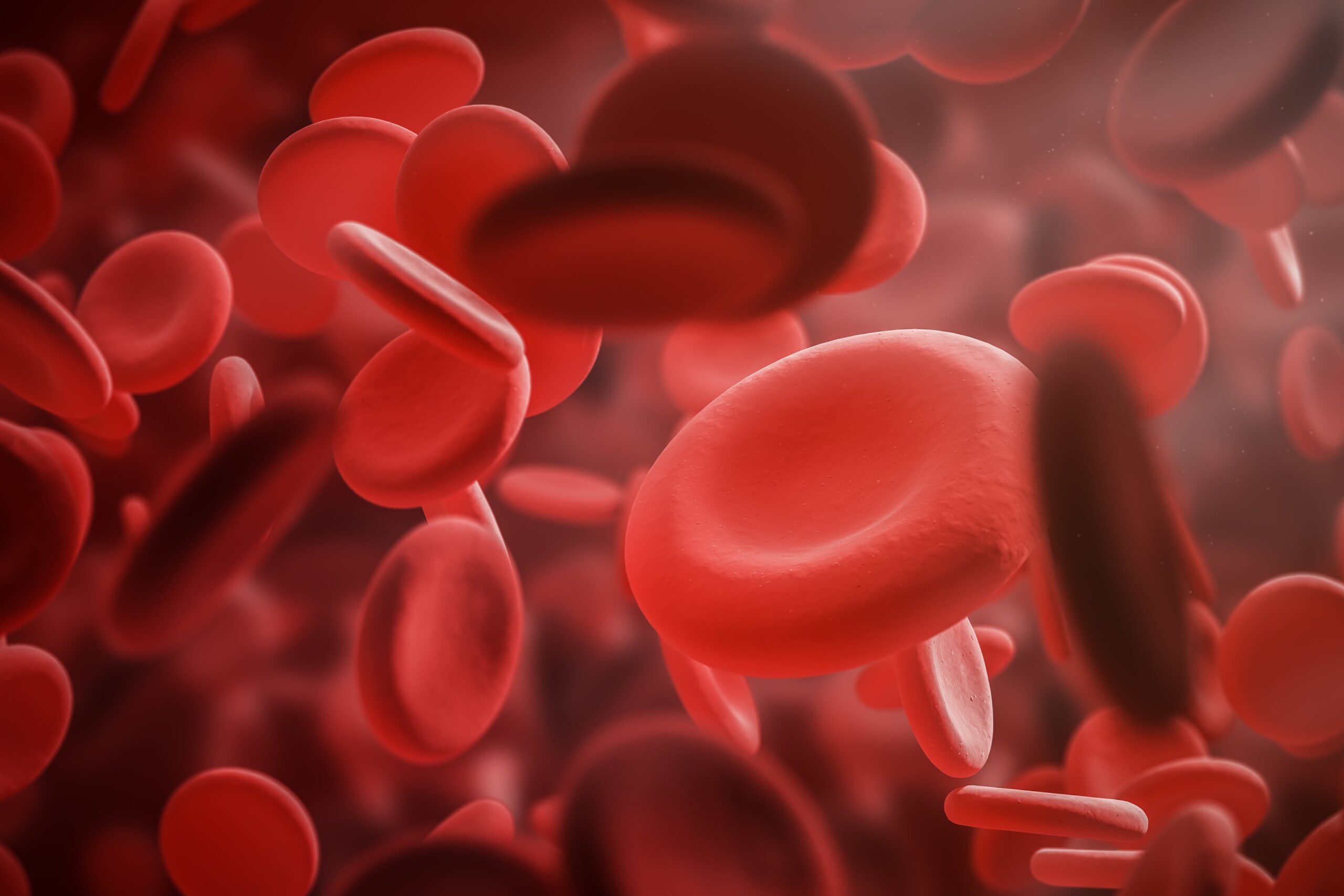Hemophilia is a rare genetic blood disorder characterized by the absence or malfunction of blood clotting factors, which can lead to severe and sometimes life-threatening bleeding. The current standard of care for hemophilia involves frequent infusions of clotting factor concentrates to prevent or treat bleeding episodes. However, this treatment is both extremely costly and extremely time-consuming and does not prevent breakthrough episodes of bleeding from occurring. Gene therapy for hemophilia has emerged as a potentially effective avenue that may lead to more effective, longer-lasting treatments for patients with the disorder.
Gene Therapy and the Challenges of Hemophilia Treatment
Hemophilia A and B, the two most common types of the disease, are caused by mutations in the genes for clotting factor VIII (FVIII) and factor IX (FIX), respectively. Common signs and symptoms of hemophilia vary depending on the level of clotting factor activity in the patient’s blood.
Mild cases generally only cause bleeding after trauma, while moderate cases can involve both significant bleeding after trauma or injury and episodes of spontaneous bleeding. In severe cases, hemophilia can cause frequent, spontaneous bleeding in the joints and tissues. The internal bleeding that can occur in severe cases can cause serious damage to organs and tissues that can be disabling and, in some cases, life-threatening.
Hemophilia Treatment Hurdles
Currently, the standard treatment for severe hemophilia involves regular prophylactic IV administration of factor concentrates. These treatments can be effective if started in early childhood and maintained consistently throughout a patient’s lifetime. However, these treatments have significant limitations. Because FVIII and FIX have short circulatory half-lives, patients must receive IV treatment administration at least two to three times each week. Even with this extremely time-intensive regimen, patients must be extremely vigilant about their activities and healthcare, as even with treatment, episodes of breakthrough bleeding can still occur. In addition, the high cost of the therapy can lead to limited access and disparity in availability in certain parts of the world.
Gene therapy for hemophilia offers a potential treatment pathway around these challenges.
Advancements in Gene Therapy for Hemophilia
Insufficient levels of a single protein cause clinical manifestations of hemophilia, and research has demonstrated that even a small improvement to the deficient blood factor levels can have a profound beneficial treatment effect. For these reasons, severe hemophilia is considered a good candidate for gene therapy. Indeed, gene therapy offers more than a potentially improved treatment regimen: by enabling continuous endogenous expression of FVIII or FIX, gene therapy offers the possibility of curing the disorder.
There are some challenges to implementing gene therapy for hemophilia, from safety concerns to vector selection to cost. Early gene therapy trials using oncoretroviral, adenoviral, and non-viral vectors appeared safe but ineffective long-term.
Current research efforts are exclusively focused on using viral vector delivery systems. Thanks to their strong safety profile, recombinant adeno-associated viral (AAV) vectors have been central to many of these studies.
Initial studies using AAV vectors had limited success in demonstrating long-term efficacy. However, notable progress has been made in subsequent years to address the limitations of previous trials. A 2011 St. Jude/University College London (UCL) study served as the first trial that demonstrated that a single administration of adeno-associated viral (AAV) vectors resulted in increased production of FIX levels in patients with severe hemophilia B. By administering early doses of corticosteroids when an increase in serum alanine aminotransferase (ALT) was observed, the research team was also able to prevent or suppress potential complications from an immune response.
Stable transgenic FIX expression was maintained throughout the seven-year follow-up period, leading to decreased episodes of spontaneous bleeding and improved quality of life. Late toxicity was not observed during the follow-up period, and ongoing monitoring has not shown any damage to the liver (the injection site).
Special Considerations for Hemophilia A
Using AAV vectors to treat hemophilia A has proved more challenging than treating hemophilia B. However, research advances have led to gene transfer approaches that address these challenges (including size constraints and inefficient FVIII expression). According to UCL Cancer Institute’s Amit C. Nathwani, as these advances continue, AAV gene therapies appear “likely to alter the treatment paradigm for hemophilia A and B.” And AAV gene therapies aren’t the only focus of the research: novel approaches some researchers are investigating include CRISPR/Cas9-mediated and lentiviral delivery systems.
Gene therapy technology continues to improve, and with it, the effectiveness of gene therapy options for treating hemophilia. Yet challenges remain. Gene therapy remains prohibitively costly, and addressing the risk of complications related to the body’s immune response continues to be a key focus. Long-term follow-up and monitoring will continue to be necessary to analyze the efficacy and safety of these treatments over time. But the field is rapidly evolving, and researchers are hopeful that gene therapy may one day revolutionize the treatment options for patients with hemophilia.
QPS is a GLP/GCP-compliant CRO delivering the highest grade of discovery, preclinical, and clinical drug development services. Since 1995, it has rapidly expanded from a bioanalysis shop to a full-service CRO with 1,100+ employees in the US, Europe, India, and Asia. Today, QPS offers expanded pharmaceutical contract R&D services with special expertise in neuropharmacology, DMPK, toxicology, bioanalysis, translational medicine, and all phases of clinical development. QPS has CLIA-certified and GLP-compliant laboratories ready to fast-track gene therapy, RT-qPCR/QPCR, serological assays, and vaccine development programs. An award-winning leader focused on bioanalysis and clinical trials, QPS is known for proven quality standards, technical expertise, a flexible approach to research, client satisfaction, and turnkey laboratories and facilities. For more information, visit www.qps.com or email info@qps.com.








